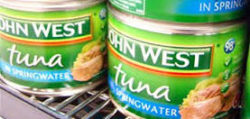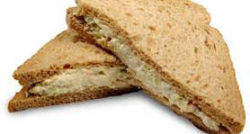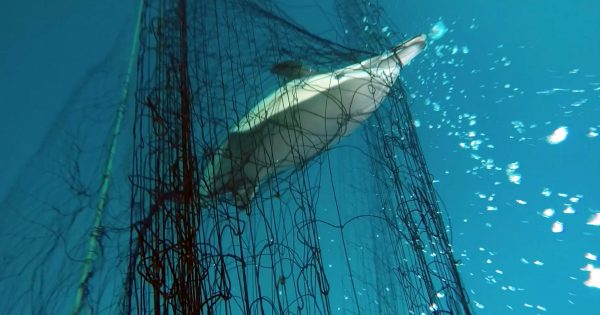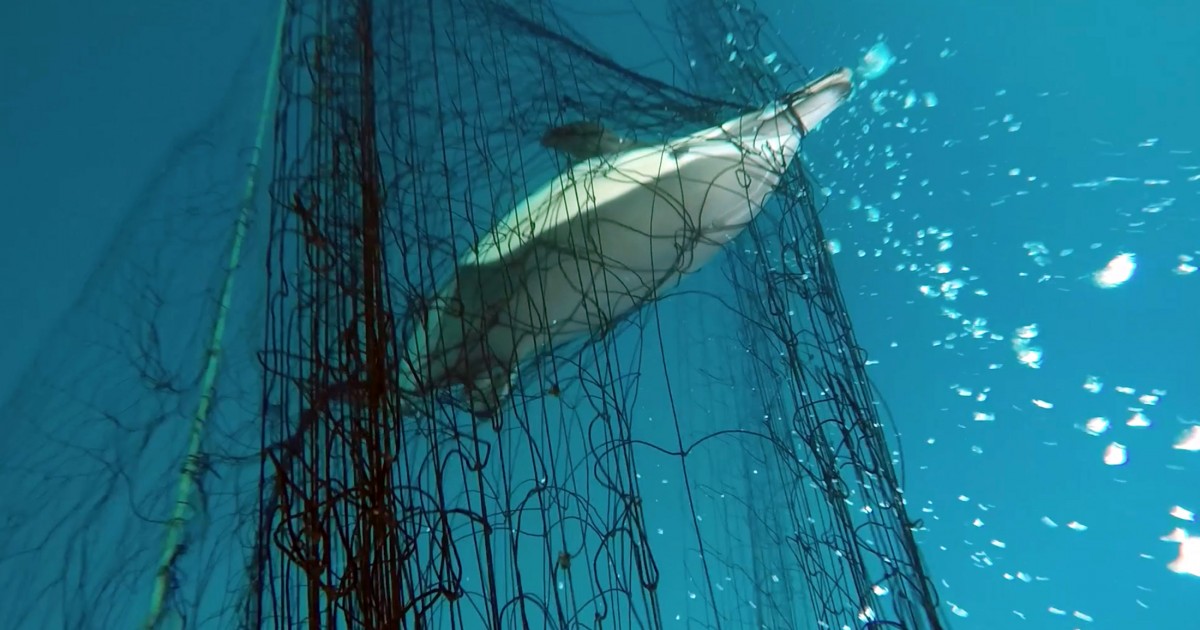More than 300.000 dolphins die every year in the nets for tuna fishing, a horrible and staggeringly high statistic.
Recent reports clearly show that 98% of British canned tuna production from companies, including the major provider John West, does not meet the criteria of sustainable development. As a result, many other species than tuna, including dolphins, are killed in the process. John West has claimed in the past that its entire output would be sustainably caught by 2016 but, in the meantime, dolphins are still being killed on a daily basis.
John West’s claims that the contents of its cans are ‘100 per cent traceable’ is false. The company has a label on its cans saying that customers can use its website to track where the tuna in each can came from.
But the website does not show “yellow carded” tuna which arrives from Thailand who blatantly disregard the opinion of the European Commission over their illegal fishing activity.
Ariana Densham, oceans campaigner at Greenpeace UK, remarked that, it’s clear John West has no intention of keeping its sustainability promise, and reports that, ‘‘A pathetic two per cent of its tuna is caught in a way which minimises harm to other marine life.”


There are many UK stores such as Waitrose, M&S, Sainsbury’s, Tesco, Aldi, Asda, Morrisons and the Co-op who sell 100 per cent sustainable tuna under their own-brand label. They try to ensure that their own-brand tuna is caught using the truly dolphin-friendly traditional pole-and-line method. In this way, fishermen catch tuna one by one with a pole, line and hook – no huge and indiscriminate nets – and thus they ensure that no other marine life is harmed in the process. Many of these supermarkets have boycotted the John West brand for not following suit.
A John West spokesman insists that: ‘John West is fully committed to the protection of the marine environment and to sustainable sourcing” and that “Our overarching sustainability promise has not changed.” However he went on to say that, “We have found it extremely difficult to increase the proportion of John West pole-and-line tuna that we can provide at a price that consumers would be willing to pay.”
However this merely sounds like prioritising the corporate profit objective over any kind of ethics and respect for the environment and marine life. Other competitors have found it commercially viable to supply sustainable tuna at a fair price and, as a result, they and industry commentators remark that “John West’s performance is truly appalling.”
The hypocrisy is breathtaking — and the cruelty and suffering unimaginable. The Whale and Dolphin Conservation charity estimates that up to 300,000 dolphins die in nets each year.
As Susan Casey, author of a disturbing new book on the way we treat dolphins, says, there are many ‘piratical’ fishing operators, ‘none of whom give a damn about them’.
Dolphins feed on the same prey as tuna, and commonly swim alongside them. In some cases, fishermen even follow them to find the fish. The result is that, when nets are used, dolphins are often swept up as well.
Helicopters and speedboats are used to spot shoals of tuna, and huge nets are suspended in the sea like a wall to catch them — along with anything else which has the misfortune to be in the way. Another gruesome fishing method is the use of so-called Fish Aggravating Devices — tethered buoys or large, raft-like objects in the sea, which attract small fish to the area. In due course, these little fish attract bigger fish, like tuna, marlin and mahi-mahi, which fed on them in turn. It is this concentration of these valuable, oily, meaty fish, which the fishing operators seek to catch in vast nets attached to these buoys, nets which are literally the size of football pitches.
The approach is cruel and indiscriminate. Over the years, the nets have seen the deaths of millions of dolphins, which, as mammals and air-breathers like humans, drown when caught this way. Worse still is the sight of these beautiful creatures being injured and killed by the machinery which hauls the nets up.
But some companies try to claim that their fishing methods using large nets are sustainable because they say that they pull up the nets in such a way that the dolphins can escape, assisted by fishermen who jump into the water to herd them out.
Professor Callum Roberts, renowned marine biologist and conservationist at the University of York, is scathing of these claims. ‘You should know that they are a little misleading,’ he says with some understatement. The trauma experienced by the dolphins even if they do escape the nets is huge. The Humane Society estimates that as many as three million dolphins each year are ‘chased, traumatised and injured by encirclement’ during fishing operations, even if they do manage to stay alive. Professor Roberts reports that reproductive rates are down, ‘which can be attributed to stress from near-death experiences at the hands of tuna fishers’. Pods of dolphins will vocalise their distress, sending out high-pitched whistles and human-sounding cries as they are caught. ‘Calves may be separated from their mother in the confusion,’ Prof Roberts adds.
Any tuna company found using these large net methods, is forbidden from using the dolphin-friendly symbol on its product. However the labelling itself is misleading because there are insufficiently clear legislation and guidelines about what exactly the phrase “dolphin friendly” means. Yet the fishing industry and retailers use the “dolphin friendly” label as a marketing tool.
Quentin Hanich, from the Australian National Centre for Ocean Resources and Security, recently commented that most tins of tuna sold in the UK contain skipjack tuna from the Atlantic. As skip jack tuna does not normally swim with dolphins, the retailers can genuinely claim that their canned tuna is ‘dolphin-friendly’, however the skipjack tuna fish could still have been caught using unsustainable practices which kill other species (just not dolphins). Hence consumers think that they are buying a product that has been responsibly fished, when in fact they are not.


As a result, the tuna population, which like dolphins is also a beautiful species, is now under such pressure that three species are endangered, and vulnerable to extinction!

